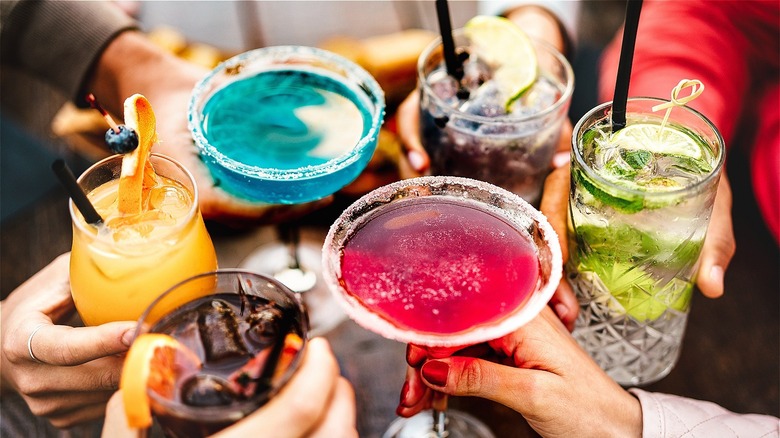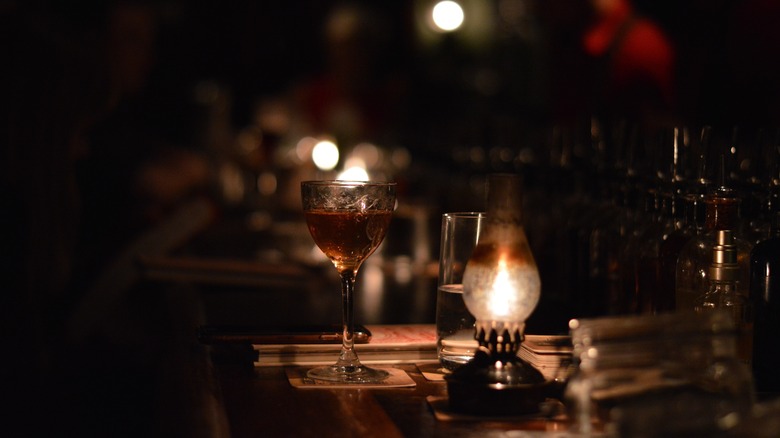Believe It Or Not, Happy Hour Wasn't Initially Invented To Sell More Drinks
It's 5 o'clock somewhere, right? It's time to relax with work buddies or your besties at the local bar for some pre-dinner drinks, maybe a round of half-price appetizers and a healthy dose of letting loose. In other words, it's happy hour. What we might think of as an opportunity for bars to make bank on workers flocking to find happiness at the bottom of a pint glass is actually an older tradition.
Life on a Navy ship can get pretty dull (well, until it's not), and in 1913, a group of sailors on the U.S.S. Arkansas called The Happy Hour Social hosted festivities twice a week for fellow Navy men. They started to become known as happy hours amongst the sailors, an opportunity to relax and alleviate boredom. There were music, movies, and activities like wrestling and boxing, and the idea spread throughout the fleet of ships that dotted the world's seas. There's little evidence that there was alcohol at these happy hours. And, unlike the British Royal Navy which waited until 1970 to do away with their daily rum ration, the U.S. Navy went dry shortly before the passage of Prohibition in 1914 with General Order 99 prohibiting alcohol.
How the general public came to know about happy hours might come from former sailors regaling folks with stories of their time at sea, but it also may have come from the speakeasies that flourished during the Prohibition era.
Prohibition-era speakeasies may have paved the way for the modern happy hour
We might have speakeasies to thank for happy hours, although there isn't any hard evidence proving it. Prohibition, or the 18th Amendment, was the lamentable period in American history when manufacturing, selling, or transporting alcohol was banned. And because humans are, well, human, underground bars called speakeasies thrived; it's thought that at their peak, New York City was home to over 100,000 such places. These bars disguised as legitimate businesses served up bathtub gin and bootleg hooch to patrons in the early evenings before heading out to dine at restaurants where alcohol was banned.
No one is quite sure when "happy hour" came to reference the hours between getting off work and the rest of the night, but some states and countries have banned happy hour (and the sale of alcohol on Sundays) in an effort to curb excessive drinking. Massachusetts banned the practice, as well as North Carolina, Vermont, and Scotland. However, Illinois reinstated happy hours in 2015, and in 2011, Pennsylvania allowed airport bars to sell alcohol at 7 a.m. and also permitted bars to host longer happy hours.
Wherever you live and whatever you want to call it, after-work drinks are still a great opportunity for letting off steam and kvetching with coworkers and friends, which we all need once in a while.

